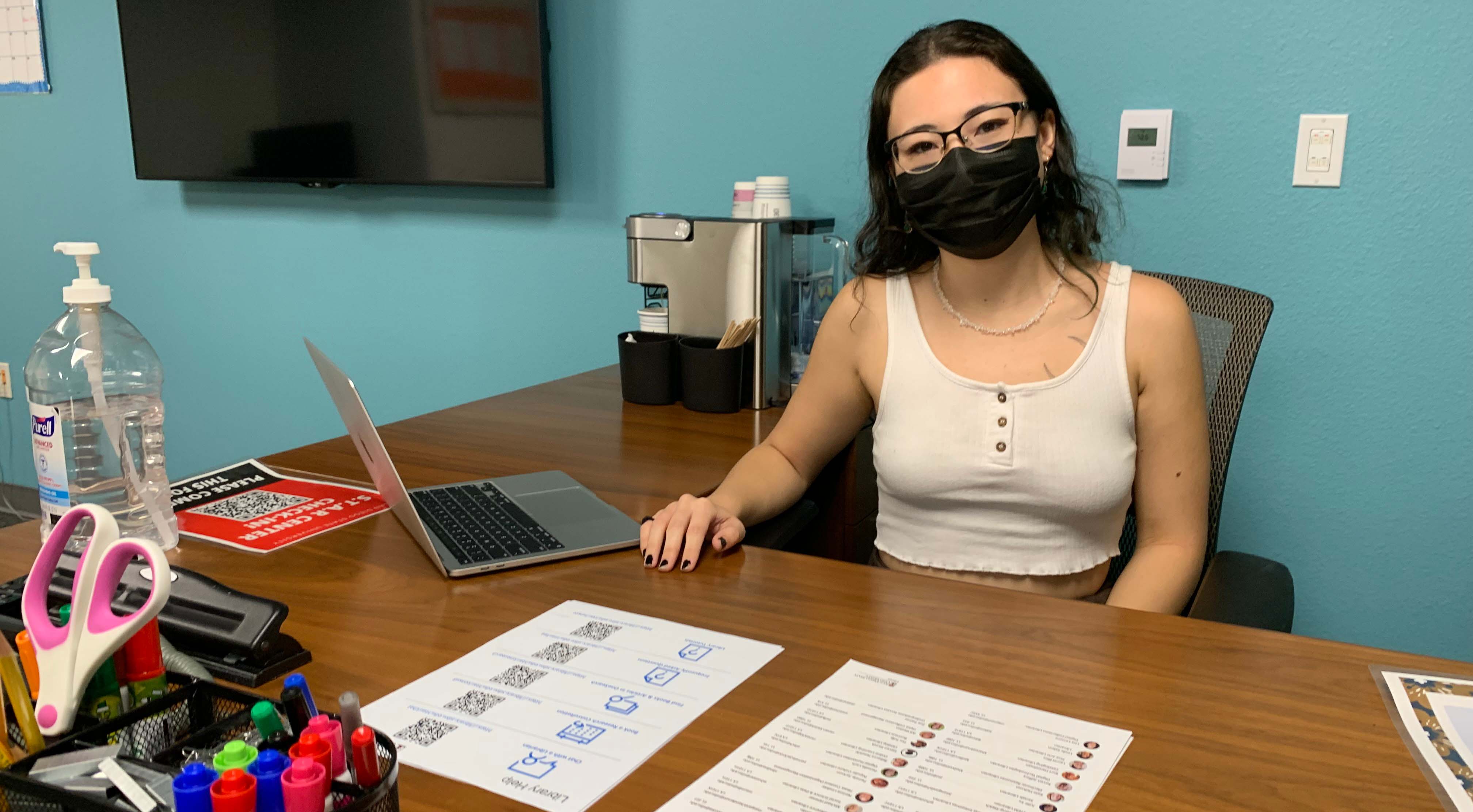Library Peer Mentors to the Rescue
Hired through federal HEERF assistance, the mentors provide skills that fell by the wayside during the virtual experience of COVID-19.

For students daunted by a tough research assignment and a University Library of more than 2.5 million books, journals and electronic resources, there may be no better place to turn for help than someone who has faced and conquered the same challenge.
New peer research mentors, hired and trained through a portion of the Higher Education Emergency Relief Fund (HEERF) provided to San Diego State University, are working both in-person and online as a first point of contact between students and the library.
“We have resources students don’t know exist,” said Yara Maayah, a second-year graduate student studying medical physics. “Helping them find what they need feels great.”
The mentors provide support through STAR Centers, academic resource support units for residential students. Mentors can also be found at the library’s Research and Information Desk, or through the library’s online chat service.
In the continuing era of COVID-19, the mentors were seen as a way to provide support for students who may not have set foot in a library, high school or college, for almost 18 months, as well as experienced students who couldn’t take advantage of the library’s full resources while learning remotely.
“Library research skills, and information literacy more broadly, are areas where we know our students lost valuable learning opportunities during the pandemic year,” said SDSU Library Dean Scott Walter. “Even the most experienced students lost critical opportunities to learn about library services and spaces that were not available to them while we were teaching, learning, and conducting research primarily online.”
Federal support
Walter said he appreciated university leadership for providing support to the library’s Research, Instruction, and Outreach Services (RIO) from HEERF, approved by the U.S. Congress to ensure that learning continues for students during the pandemic.
The library peer mentors build upon pre-pandemic experience in hiring, training, and mentoring student assistants at the library’s Research Services Desk and an array of digital research and instructional services during the pandemic (via Zoom and the Ask a Librarian service), augmenting an already vast network of campus partners to support student success.
These include the STAR Centers in Tenochca Hall, Maya Hall, South Campus Plaza North, Chapultepec Hall, and Granada Apartments. As peers, the mentors provide an approachable, welcoming first point-of-contact for those who need to access library resources.
They joined professional advisors and peer mentors serving predominantly first- and second-year students whose transition from high school to college was most affected by the pandemic experience of remote learning and online-only library services.
The mentors introduce students to basic research tools and strategies, help students to access library resources and services resources, and connect students with subject specialist librarians for more in-depth research needs.
Residential life
“Being in the dorm makes it even easier for the students to access us,” said mentor Brianna Schuster, a fourth-year accounting student. “They don’t always know about the online chat function, so this makes it less work for them to find us.”
Kara Bauer, executive director of the Residential Education Office, said the program “aligns with other successful peer education strategies to help reduce barriers for students who might be intimidated to ask for help from a professional staff or faculty member.”
Maayah said she enjoys helping fellow students get up to speed on the library early in their college careers.
“They will build on the base knowledge we give them, and that’s really important,” she said. “When we don’t know the answers or when there are very specific questions, we transfer students on to the librarians who can help them.
Peer research mentors in the STAR Centers will be available from 4:30 to 6:30 p.m. through finals week on the following schedule (next semester’s schedule may vary):
Monday — South Campus Plaza - North and Tenochca Hall
Tuesday — Chapultepec Hall and Maya Hall
Wednesdays — Maya Hall and South Campus Plaza - North
Thursdays — Chapultepec Hall and Tenochca Hall
Students can also find the peer mentors at the library’s Research Services Desk (first floor of the dome, next to the circulation desk), as well as online through Library Chat.



